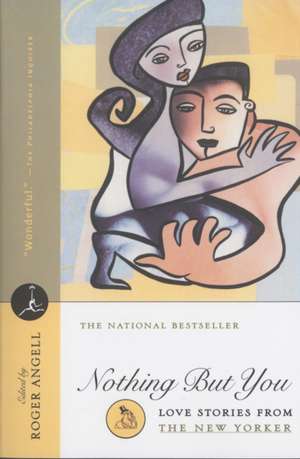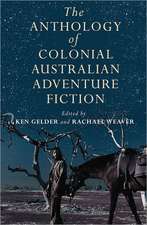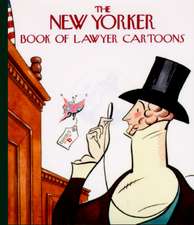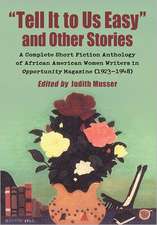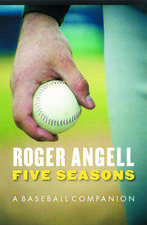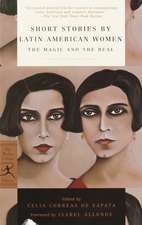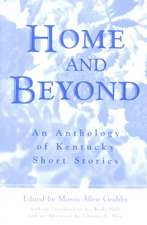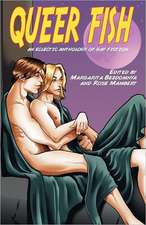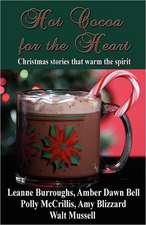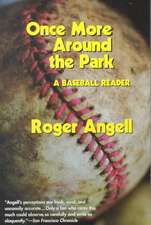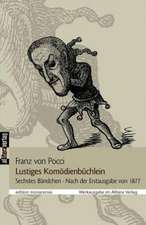Nothing But You: Love Stories from the New Yorker: Modern Library (Paperback)
Autor New Yorker Magazine Editat de Roger Angellen Limba Engleză Paperback – 30 apr 1998
Din seria Modern Library (Paperback)
-
 Preț: 129.93 lei
Preț: 129.93 lei -
 Preț: 124.55 lei
Preț: 124.55 lei -
 Preț: 120.25 lei
Preț: 120.25 lei -
 Preț: 112.74 lei
Preț: 112.74 lei -
 Preț: 169.74 lei
Preț: 169.74 lei -
 Preț: 108.33 lei
Preț: 108.33 lei -
 Preț: 100.57 lei
Preț: 100.57 lei -
 Preț: 107.35 lei
Preț: 107.35 lei -
 Preț: 155.91 lei
Preț: 155.91 lei -
 Preț: 142.38 lei
Preț: 142.38 lei -
 Preț: 142.79 lei
Preț: 142.79 lei -
 Preț: 133.47 lei
Preț: 133.47 lei -
 Preț: 126.88 lei
Preț: 126.88 lei -
 Preț: 134.93 lei
Preț: 134.93 lei -
 Preț: 120.07 lei
Preț: 120.07 lei -
 Preț: 119.74 lei
Preț: 119.74 lei -
 Preț: 122.76 lei
Preț: 122.76 lei -
 Preț: 119.36 lei
Preț: 119.36 lei -
 Preț: 112.33 lei
Preț: 112.33 lei -
 Preț: 79.39 lei
Preț: 79.39 lei - 18%
 Preț: 97.51 lei
Preț: 97.51 lei -
 Preț: 137.09 lei
Preț: 137.09 lei -
 Preț: 103.26 lei
Preț: 103.26 lei
Preț: 106.94 lei
Nou
Puncte Express: 160
Preț estimativ în valută:
20.46€ • 21.41$ • 16.100£
20.46€ • 21.41$ • 16.100£
Carte disponibilă
Livrare economică 12-26 martie
Livrare express 26 februarie-04 martie pentru 35.56 lei
Preluare comenzi: 021 569.72.76
Specificații
ISBN-13: 9780375751509
ISBN-10: 0375751505
Pagini: 496
Dimensiuni: 156 x 233 x 27 mm
Greutate: 0.62 kg
Editura: Modern Library
Seria Modern Library (Paperback)
ISBN-10: 0375751505
Pagini: 496
Dimensiuni: 156 x 233 x 27 mm
Greutate: 0.62 kg
Editura: Modern Library
Seria Modern Library (Paperback)
Notă biografică
Roger Angell has been a fiction editor at The New Yorker for more than forty years and is one of the most acclaimed baseball writers in the country.
Extras
Introduction
Reading the stories in this book will make many of us wish to fall in love again, but just as often, I think, it will be quite the other way: My God, spare me, just this once. Save me from this unexpected woman, this unlikely man-from this sudden happiness and then the crushing loss. Don't let me wait for her phone call or for another one of her ill-spelled, beautiful letters. Enough of plans and heartfelt talks and wearying complication, enough with tears. But then, as we go on reading, we may change our minds. I don't care-I want it all, no matter what. Bring it back, let me be in love again.
What we can envy these lovers, either way, is their energy. Give them a whisper of romance, the barest twitch of intrigue, one heated breath from the open ovens of sex, and they are changed beyond all recognition. Eagerly they wander into the garden, scratch out an eye, fall into the river, throw over a wife or a husband or a devoted partner, and leap headlong into postures of entranced pleasure and humiliation, hopeless attachment or sensual ennui-all for the sake of the red-haired woman from 6 Krochmalna Street; for the old gentleman with the umbrella; for the seamstress who appears at her doorway with a towel in her hand; for the young woman seen weeping on the street; for the attention of a careless, long-departed family of neighbors or of a childhood friend, who, like as not, has barely noticed the connection or kept a moment's memory of whatever it was that meant the world to this lonely girl or to that impoverished professor. Nothing will stop these lovers. A ring on the phone, the glimpse of an estranged spouse or remembered sweetheart, a chance for an entanglement or a shot at escape, and they are out the door and out of sight. Away they go-dashing through traffic and off to San Francisco, to Uzbekistan, to Brisbane, to the Rue Saint-Didier, to Barcelona, to the King's Inn in Dublin, to Nashville and Yonville, overnight to many distant cities. That electric title for Donald Barthelme's story, which closes this collection, was spotted by him on the side of a passing mover's van. Love drives us onward-or keeps us at home, noticing and longing, or grasping after what was here all along. What a mess! What a situation! What a subject for a writer!
When the idea for this collection first came to me-an anthology of New Yorker fiction, the first one in thirty years, but this time assembled around a single theme-I was enticed by a dozen-odd particular stories that had stayed clear in my mind for years (many of them are in this book), and also by the delusion that others would be easy to find, because we all know what makes a love story, after all. But the definition wouldn't stay put. The more stories I read (and set aside and read again), the more kinds of love and lovers began to move in around me and demand attention. I quickly saw that I would have to make room for a mother's love for her dying son, and for the baby-sitter called in to allow her married friend to keep a tawdry rendezvous, and for a neighborhood of young mothers caught in an addictive happiness over their babies, and so on, but I was disconcerted by the number of stories that were about despair and separation and death, as well as love-the opposites together, interlocked. I had wanted a book stuffed with l'amour, with plenty of sex and excitement, some sweetness and some getting it on, with matching portions of heavy breathing and twerpy longings-yes, fans of romance, there is a first kiss in the book-but along with this, of course, came much more: marriages and their consequences and endings, missed chances, changes of heart, wild jokes, glooms, the inexplicable, and enduring silences. I make no apology, then, for the sloppy latitude of this book, or for some stories that may seem to be only glancingly about love, or for others that are flighty in their intentions. Love becomes life, as we ought to know by now, and there is no accounting for it.
By limiting this selection to stories that have appeared in the magazine since 1965 (a rule that I broke to admit a gemlike John Cheever story from the summer of '64), I passed up a chance to reprint several New Yorker classics-celebrated love stories like Cheever's "The Country Husband," Jean Stafford's "Children Are Bored on Sunday," Jerome Salinger's "A Perfect Day for Bananafish" or "For Esme, with Love and Squalor," Harold Brodkey's "Sentimental Education," and others. But these tales, I felt, were so familiar to us all-almost as strong in memory as "The Lady with the Lap Dog," "Death in Venice," or "The Dead"--that we could honor their authors this time by asking them to make room for others in our crowded gallery. (I can find no way to appease the ten or twenty New Yorker writers-they know who they are-whose stories absolutely deserve to be in here but were, for one reason or another, passed over. Length was the most common problem-the only stricture that could have done in Edith Templeton's sensual masterpiece "The Darts of Cupid," for example.) No author is represented more than once, but a few newcomers have made the cut, sometimes with a first-ever story. Young writers belong in a book like this.
Because I was so aware of those famous earlier love stories, I formed the notion that most of the entries in this roundup would come from the late sixties, the seventies, and the early eighties, but it didn't work out that way. Like their predecessors, modern-day story writers can't get love out of their heads, it would seem, and their characters, while more free in its practices, can't stop talking about it at the same time. This was a big surprise to me. It was also my view that this collection, taken as a thirty-year cross section, might provide a vivid geological chart of the changing critical strata and preoccupations of contemporary fiction, but that didn't happen either. While reading these stories, we can find a thrilling pleasure in the confident flourishes of Nabokov; in the frantic rush of sex and and worry in Isaac Bashev's Singer; in Woody Allen's acrobatic twists of plot; in the way O'Hara's people talk (by chance, his "How Young, How Old" was the very last of his two hundred and forty-one stories to run in the magazine); in the measured unravellings of family and loss by William Maxwell; in the mysterious itinerants of Alice Munro; in the different shades of darkness in Raymond Carver and William Trevor, and so forth. But it is the lovers here whom we recognize first of all, and to whom we then give our riveted attention, while the writers happily-I think happily-stand aside. Love has carried the day, sweeping our authors and characters downstream in a swirl of passions and literary sediments, mixing together postmodernists and regionalists, true-tale-tellers and ironists, childhood ruminators and bold students of adultery, and spilling their work out across a broad delta of feelings, which we can traverse here at our own pace, two or three stories at a time, and, while gazing around, perhaps begin to think about ourselves more lightly and forgivingly than has been our recent custom.
AFFECTION, NOT PUNCTILIOUSNESS, requires me to name my colleagues in The New Yorker's fiction department who, taken together, had a hand in the first excited manuscript readings and in the last, closing-day proofreadings of the stories that now come together in this anthology. The list begins with the august handful already on staff when I came to work in 1956 and ends with the cheerful, overworked incumbents just down the hall from me now: William Maxwell, Robert Henderson, Carroll Newman, Elizabeth Cullinan, Rachel MacKenzie, Robert Hemenway, Derek Morgan, Frances Kiernan, Jane Anderson, Charles McGrath, Daniel Menaker, Jane Mankiewicz, Veronica Geng, Trish Deitch, Linda Asher, Gwyneth Cravens, Alice Quinn, Julia Just, Pat Strachan, Deborah Garrison, David McCormick, Betsy Schmidt, Hal Espen, Jay Fielden, Cressida Leyshon, and Bill Buford. And the magazine's editors: William Shawn, Robert Gottlieb, and Tina Brown. My co-editor and discerning Cupid's helper in the selection and preparation of this anthology was Mary D. Kierstead, who also shines forth amidst this constellation of distinguished colleagues and friends.
-Roger Angell
Reading the stories in this book will make many of us wish to fall in love again, but just as often, I think, it will be quite the other way: My God, spare me, just this once. Save me from this unexpected woman, this unlikely man-from this sudden happiness and then the crushing loss. Don't let me wait for her phone call or for another one of her ill-spelled, beautiful letters. Enough of plans and heartfelt talks and wearying complication, enough with tears. But then, as we go on reading, we may change our minds. I don't care-I want it all, no matter what. Bring it back, let me be in love again.
What we can envy these lovers, either way, is their energy. Give them a whisper of romance, the barest twitch of intrigue, one heated breath from the open ovens of sex, and they are changed beyond all recognition. Eagerly they wander into the garden, scratch out an eye, fall into the river, throw over a wife or a husband or a devoted partner, and leap headlong into postures of entranced pleasure and humiliation, hopeless attachment or sensual ennui-all for the sake of the red-haired woman from 6 Krochmalna Street; for the old gentleman with the umbrella; for the seamstress who appears at her doorway with a towel in her hand; for the young woman seen weeping on the street; for the attention of a careless, long-departed family of neighbors or of a childhood friend, who, like as not, has barely noticed the connection or kept a moment's memory of whatever it was that meant the world to this lonely girl or to that impoverished professor. Nothing will stop these lovers. A ring on the phone, the glimpse of an estranged spouse or remembered sweetheart, a chance for an entanglement or a shot at escape, and they are out the door and out of sight. Away they go-dashing through traffic and off to San Francisco, to Uzbekistan, to Brisbane, to the Rue Saint-Didier, to Barcelona, to the King's Inn in Dublin, to Nashville and Yonville, overnight to many distant cities. That electric title for Donald Barthelme's story, which closes this collection, was spotted by him on the side of a passing mover's van. Love drives us onward-or keeps us at home, noticing and longing, or grasping after what was here all along. What a mess! What a situation! What a subject for a writer!
When the idea for this collection first came to me-an anthology of New Yorker fiction, the first one in thirty years, but this time assembled around a single theme-I was enticed by a dozen-odd particular stories that had stayed clear in my mind for years (many of them are in this book), and also by the delusion that others would be easy to find, because we all know what makes a love story, after all. But the definition wouldn't stay put. The more stories I read (and set aside and read again), the more kinds of love and lovers began to move in around me and demand attention. I quickly saw that I would have to make room for a mother's love for her dying son, and for the baby-sitter called in to allow her married friend to keep a tawdry rendezvous, and for a neighborhood of young mothers caught in an addictive happiness over their babies, and so on, but I was disconcerted by the number of stories that were about despair and separation and death, as well as love-the opposites together, interlocked. I had wanted a book stuffed with l'amour, with plenty of sex and excitement, some sweetness and some getting it on, with matching portions of heavy breathing and twerpy longings-yes, fans of romance, there is a first kiss in the book-but along with this, of course, came much more: marriages and their consequences and endings, missed chances, changes of heart, wild jokes, glooms, the inexplicable, and enduring silences. I make no apology, then, for the sloppy latitude of this book, or for some stories that may seem to be only glancingly about love, or for others that are flighty in their intentions. Love becomes life, as we ought to know by now, and there is no accounting for it.
By limiting this selection to stories that have appeared in the magazine since 1965 (a rule that I broke to admit a gemlike John Cheever story from the summer of '64), I passed up a chance to reprint several New Yorker classics-celebrated love stories like Cheever's "The Country Husband," Jean Stafford's "Children Are Bored on Sunday," Jerome Salinger's "A Perfect Day for Bananafish" or "For Esme, with Love and Squalor," Harold Brodkey's "Sentimental Education," and others. But these tales, I felt, were so familiar to us all-almost as strong in memory as "The Lady with the Lap Dog," "Death in Venice," or "The Dead"--that we could honor their authors this time by asking them to make room for others in our crowded gallery. (I can find no way to appease the ten or twenty New Yorker writers-they know who they are-whose stories absolutely deserve to be in here but were, for one reason or another, passed over. Length was the most common problem-the only stricture that could have done in Edith Templeton's sensual masterpiece "The Darts of Cupid," for example.) No author is represented more than once, but a few newcomers have made the cut, sometimes with a first-ever story. Young writers belong in a book like this.
Because I was so aware of those famous earlier love stories, I formed the notion that most of the entries in this roundup would come from the late sixties, the seventies, and the early eighties, but it didn't work out that way. Like their predecessors, modern-day story writers can't get love out of their heads, it would seem, and their characters, while more free in its practices, can't stop talking about it at the same time. This was a big surprise to me. It was also my view that this collection, taken as a thirty-year cross section, might provide a vivid geological chart of the changing critical strata and preoccupations of contemporary fiction, but that didn't happen either. While reading these stories, we can find a thrilling pleasure in the confident flourishes of Nabokov; in the frantic rush of sex and and worry in Isaac Bashev's Singer; in Woody Allen's acrobatic twists of plot; in the way O'Hara's people talk (by chance, his "How Young, How Old" was the very last of his two hundred and forty-one stories to run in the magazine); in the measured unravellings of family and loss by William Maxwell; in the mysterious itinerants of Alice Munro; in the different shades of darkness in Raymond Carver and William Trevor, and so forth. But it is the lovers here whom we recognize first of all, and to whom we then give our riveted attention, while the writers happily-I think happily-stand aside. Love has carried the day, sweeping our authors and characters downstream in a swirl of passions and literary sediments, mixing together postmodernists and regionalists, true-tale-tellers and ironists, childhood ruminators and bold students of adultery, and spilling their work out across a broad delta of feelings, which we can traverse here at our own pace, two or three stories at a time, and, while gazing around, perhaps begin to think about ourselves more lightly and forgivingly than has been our recent custom.
AFFECTION, NOT PUNCTILIOUSNESS, requires me to name my colleagues in The New Yorker's fiction department who, taken together, had a hand in the first excited manuscript readings and in the last, closing-day proofreadings of the stories that now come together in this anthology. The list begins with the august handful already on staff when I came to work in 1956 and ends with the cheerful, overworked incumbents just down the hall from me now: William Maxwell, Robert Henderson, Carroll Newman, Elizabeth Cullinan, Rachel MacKenzie, Robert Hemenway, Derek Morgan, Frances Kiernan, Jane Anderson, Charles McGrath, Daniel Menaker, Jane Mankiewicz, Veronica Geng, Trish Deitch, Linda Asher, Gwyneth Cravens, Alice Quinn, Julia Just, Pat Strachan, Deborah Garrison, David McCormick, Betsy Schmidt, Hal Espen, Jay Fielden, Cressida Leyshon, and Bill Buford. And the magazine's editors: William Shawn, Robert Gottlieb, and Tina Brown. My co-editor and discerning Cupid's helper in the selection and preparation of this anthology was Mary D. Kierstead, who also shines forth amidst this constellation of distinguished colleagues and friends.
-Roger Angell
Descriere
The bestselling, critically acclaimed anthology of stories on the theme of love, culled from the pages of The New Yorker "--the magazine that has defined American short fiction for almost a century."
